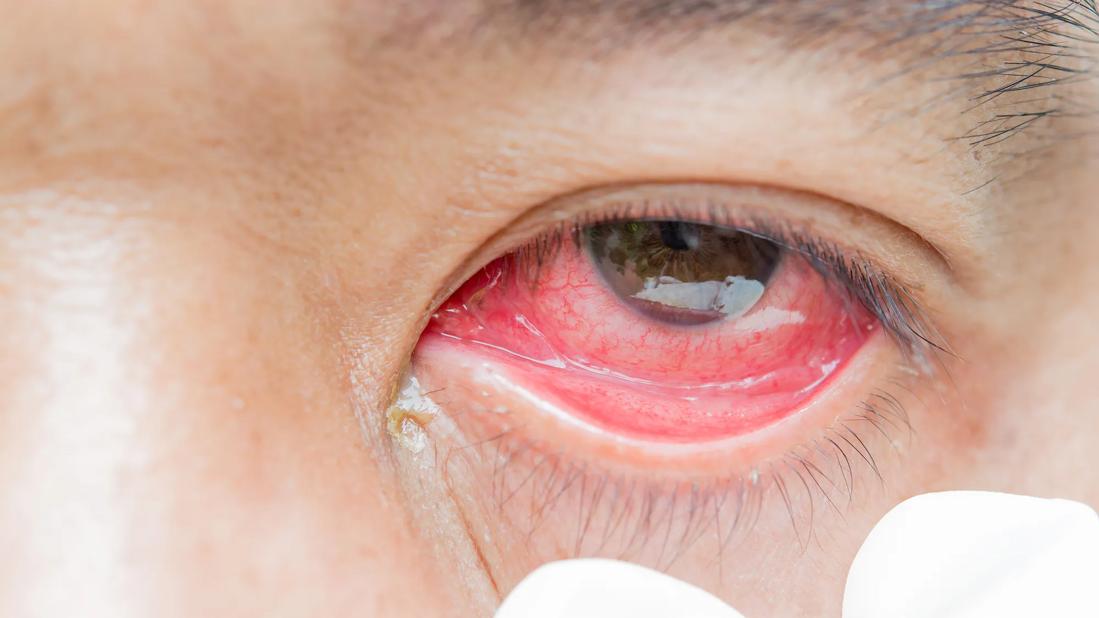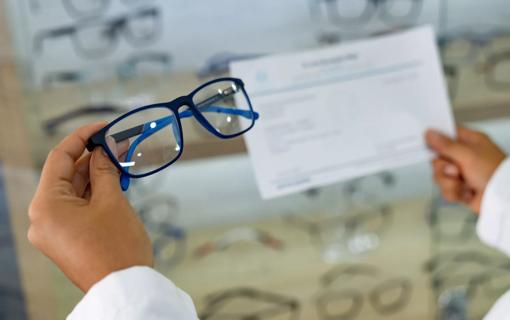While rare, it is possible to have an allergic reaction to materials used in contact lenses or ingredients found in contact solution

If you wear contact lenses, you know that they can often make things worse when allergies or an infection are irritating your eyes.
Advertisement
Cleveland Clinic is a non-profit academic medical center. Advertising on our site helps support our mission. We do not endorse non-Cleveland Clinic products or services. Policy
But it might surprise you to learn that you also could have an allergic reaction to the lenses themselves or to the solution you use with them.
So, how do you know if you have a contact lens allergy?
Optometrist Reecha Kampani, OD, explains why some people may be allergic to their contacts or even contact solution and what to do if you suspect you’re having an allergic reaction.
Yes, you can have an allergic reaction to contact lenses. It may be from the material used to make contact lenses such as silicone.
“But it’s not very common,” clarifies Dr. Kampani. “I don’t see a lot of patients with an allergy to silicone, but it can still happen.”
If you’re allergic to the materials used to make your contact lenses, you may experience:
You may have giant papillary conjunctivitis (GPC), a condition when the inside of your eyelids become inflamed and form tiny bumps. This can be due to an allergy to your lenses or solution, but also can be due to the friction caused by your lenses rubbing against your eyelid or a buildup of proteins, pollen or dust on your lenses. This typically happens when you don’t clean or store your lenses correctly or from overwearing them. It may be more likely that you have an intolerance instead of an allergy.
Advertisement
Yes, and it’s more common to be allergic to contact solution than the contact lens itself. For example, you may have an allergic reaction to the type of contact solution you use to clean, disinfect and store your contact lenses.
“It would likely be from a preservative that’s in the solution,” shares Dr. Kampani. “If you’re experiencing an allergic reaction from your contact solution, I would recommend switching to a hydrogen peroxide solution. Or consider a daily disposal lens, which doesn’t require the use of any contact solution.”
Take a contact lens holiday (sounds fun, right?). The idea is to not wear your lenses or use your current brand of contact solution until you see your eye doctor and they can determine what’s causing your eye issues.
To help manage your symptoms, you may also need to:
Your treatment will depend on the cause, says Dr. Kampani. In some cases, all you may need is to switch either your contacts or solution to remove the irritating ingredient or material.
“For example, if you’re just having intolerance, we might take a break from your contacts and then switch to a daily disposable lens so you’re opening a fresh lens each day,” she adds. “But if somebody has signs that there’s some damage — and depending on how bad it is — we may have to get them out of contact and switch to eyeglasses.”
Another possible solution? Consider LASIK eye surgery, which will remove the need for contact lenses or contact solution.
While rare, it’s possible you may have an allergic reaction to contacts or contact solution. If you notice symptoms like red, itchy eyes, it’s important to stop wearing your contacts until you’re able to seek medical treatment.
Depending on the cause of your irritation, you may need to take an extended break from wearing contacts. Your eye doctor may also suggest switching to a type of lens or solution that will be more comfortable for you.
And remember that following good contact lens hygiene is important — wash your hands before handling your lenses, don’t wear your contacts for too long and don’t sleep in your contacts — to maintain your eye health.
Advertisement
Learn more about our editorial process.
Advertisement

A correct prescription helps your eyes see clearly — but as natural changes occur, you may need stronger or different eyeglasses

It usually takes anywhere from a couple of days to a few weeks to get fully adjusted

The lifespan of contact lenses depends on whether you have reusable or disposable lenses

Keep your eyes healthy by not sleeping in your contacts, properly caring for your lenses and wearing eye protection when necessary

While it may seem harmless, showering — or even swimming or washing your face — with contacts in can cause sensitivity to light, irritation and even an infection

Even napping with contacts in can lead to eye infections, lens displacement and dry eyes

Both have pros and cons, but ultimately it’s a personal decision only you can make

Your eye prescription reveals a lot about your eye health, including how they’re shaped, how well you see and what your new glasses can do for your sight

Wearing a scarf, adjusting your outdoor activities and following your asthma treatment plan can help limit breathing problems

Your diet in the weeks, days and hours ahead of your race can power you to the finish line

When someone guilt trips you, they’re using emotionally manipulative behavior to try to get you to act a certain way